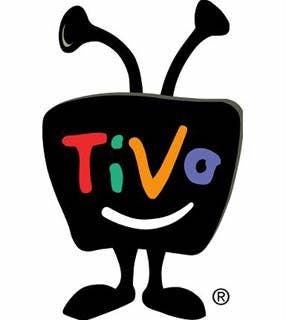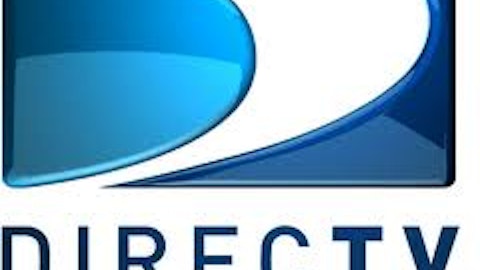Shares of DVR maker TiVo Inc. (NASDAQ:TIVO) have been on a roller-coaster ride lately, rising and falling rapidly on news that its nine-year long patent battle against Cisco Systems, Inc. (NASDAQ:CSCO), Google Inc (NASDAQ:GOOG), and Time Warner Cable Inc (NYSE:TWC) was finally ending. This volatility, which caused shares to spike 7.5% on June 6 and then plunge 19% the following day, was due to over-optimistic projections of the final settlement, which came in at $490 million. Some analysts had expected the final settlement to exceed $1.7 billion – which would have been a nice payday for TiVo Inc. (NASDAQ:TIVO), which only has $570.9 million in cash and equivalents.
A little background
When TiVo Inc. (NASDAQ:TIVO) was first released in 1999, it was a revolutionary product. TiVo merged the traditional method of recording shows with computer technology, by using a large hard drive and a software interface, and the modern DVR was born. Users would no longer have to buy videocassette tapes to record their programs on, or deal with the frustration of programming VCRs.
Although TiVo Inc. (NASDAQ:TIVO)’s product was revolutionary, its stock performance has been dismal. The stock initially surged from its IPO price of $16 to $58 between October 1999 and January 2000, but the devastating dot-com crash deflated the shares. Over the past 13 years, the stock has still been unable to reclaim its IPO price. A look at its five-year performance also reveals some unstable trends.
Even though the company’s revenue has steadily risen, its diluted earnings have plunged over 100%. Meanwhile, its cash reserves and free cash flow have both declined 46%, only experiencing a slight surge two years ago due to a settlement with DISH Network Corp. (NASDAQ:DISH) and Echostar Corporation (NASDAQ:SATS), which both paid TiVo $500 million in licensing fees.
Patent squatting is not a long-term solution
Therein lies TiVo Inc. (NASDAQ:TIVO)’s problem. Faced with its lack of profitability, TiVo has resorted to squatting on its digital-video recording patents, especially its “time warp system,” which allows users to record one program while watching another. While litigation might seem like a profitable venture, it is also extremely expensive. Over the past five years, TiVo’s operating expenses have surged 213.5%. As a result, it now has a negative operating margin of -7.8% and a paper-thin profit margin of 1.6%.
In its most recent quarter, TiVo Inc. (NASDAQ:TIVO) reported an adjusted loss of $0.09 per share, an improvement from the loss of $0.17 it reported in the prior year quarter. Its revenue slid 8.8% to $61.8 million. TiVo’s CEO, Tom Rogers, highlighted the addition of 277,000 subscriptions to its MSO (multi-system operator) base, its strongest year-on-year growth in seven years. While the addition of new subscribers is encouraging, it hasn’t done much for profit or revenue growth.
Livin’ on a prayer
As a result, TiVo Inc. (NASDAQ:TIVO) investors were counting on a big settlement from Cisco Systems, Inc. (NASDAQ:CSCO), Time Warner Cable Inc (NYSE:TWC) and Google Inc (NASDAQ:GOOG) to prop up its cash flow. JPMorgan analysts fueled this sentiment, claiming that Motorola Mobility, a subsidiary of Google, could pay up to $400 million to TiVo. Google had sold Motorola’s set-top (home cable) box business to Arris Group, Inc. (NASDAQ:ARRS) in April, and had promised to limit the latter’s liability in future patent litigation patents at $50 million.
Therefore, a combined $490 million settlement from all three companies was a huge disappointment. Cisco Systems, Inc. (NASDAQ:CSCO) will pay the majority of the settlement, at $294 million, due to its video streaming business.
Shrewd investors will know that TiVo Inc. (NASDAQ:TIVO)’s current strategy of relying on patent litigation to fuel its finances rarely works. Former photography giant Eastman Kodak Company (OTCMKTS:EKDKQ), which faded over the past four decades, resorted to patent squatting in the final few years of its existence. It sued Apple Inc. (NASDAQ:AAPL), Research In Motion Ltd (NASDAQ:BBRY) and other tech giants over patented digital camera technology that the companies had used in their smartphones. It worked briefly, but it couldn’t support the company for long, and it filed for bankruptcy last year.
Unlike Eastman Kodak Company (OTCMKTS:EKDKQ), however, TiVo has the advantage of licensing agreements – which means that as long as DVRs are a relevant technology, then it can still generate a steady stream of revenue.






